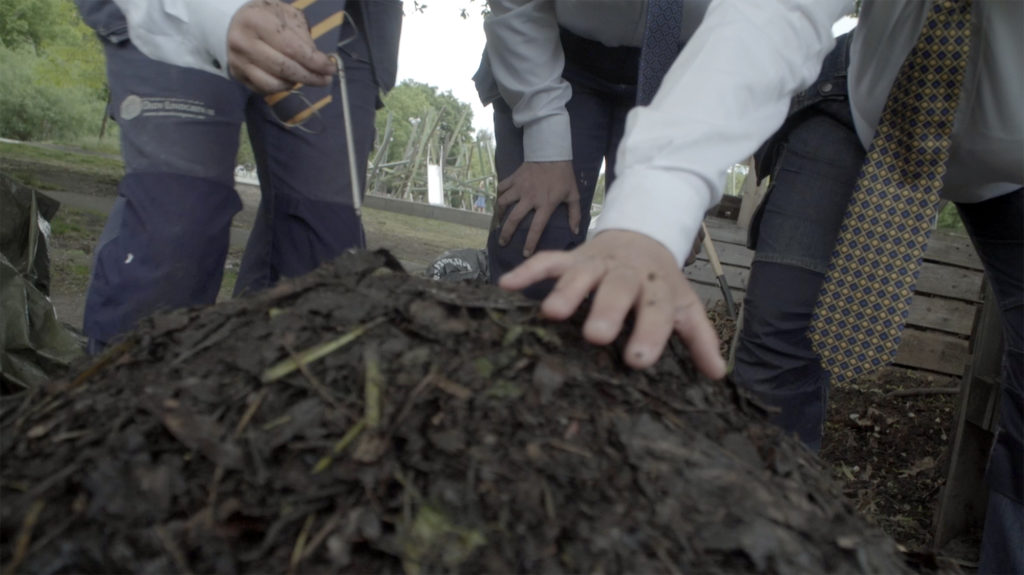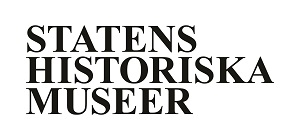
Seminarium: Ekologisk ekonomi och jordens värde. Humus Economicus Samlaboratorium med Thomas Hahn, Åsa Ståhl & Mathilda Tham
Välkomna till ett seminarium med Thomas Hahn, Stockholm Resilience Centre, och Åsa Ståhl & Mathilda Tham, Linnéuniversitetet.
NÄR: Fredag 10 september, 10:15-12:00.
VAR: Zoom (en länk skickas ut efter registrering)
REGISTRERING: Skicka ett mail med ämnet SOIL till the.posthumanities.hub@gmail.com senast den 8:e september 2021 kl. 12:00.
Seminariet ges på engelska.
Ecological Economics, Soil Care, and Homemaking in Times of Transition
Ecology and economy share a Greek root, oikos, meaning “home” or “household”. In this seminar, we will take a closer look at both ecological economics and oikology to critically and creatively discuss what a transition from a Homo economicus mindset to a Humus economicus mode of thinking might entail, which strives to re-embed societies in soils and lands (Krzywoszynska and Marchesi 2020) while acknowledging that we all are utterly and positively soil dependent. Soils are an essential nexus between different spheres such as food, water, environment and energy. In addition, the health of people, plants, animals, and ecosystems is indivisible and intricately linked through soil health (Lal et.al 2017, Evans et. al. 2021). Thus, soils are key to an integrated agenda for sustainability and a fair transition to more resilient societies. Soil health and biodiversity in turn depend on how we engage with soils, and the relations and collaborations we build with and around different kinds of soils in various local contexts. If we are to reap the benefits of the fast soil processes, it is vital to understand and care for soil biodiversity and the slow soil processes (Gu et. al. 2021). Yet, research has shown that economics is often the dominant criterion in sustainable soil management (Kik et. al. 2021), and short term interests is decisive in urban exploitation processes where rich soils are sealed and lost for future generations (Jordbruksverket 2017). To fully recognize soils’ importance in environment, economy and society, it might be generative to think of humans as part of a soil community, forming more-than-human soil cultures with responsibilities across generations. It is in this expanded sense that we will turn to oikology as a relational and locally engaged form of homemaking within planetary limits (Tham, Ståhl and Hyltén-Cavallius 2019) that once again links ecology and economy through oikos and an ethics of care.
The seminar is arranged by Humus Economicus Collaboratory, National Historical Museums, as part of the research project Humus economicus, funded by Formas, a Swedish Research Council for Sustainable Development, in association with The Posthumanities Hub, Linköping University.
ABOUT THE SPEAKERS
Our guests today is Thomas Hahn, associate professor and principal researcher at Stockholm Resilience Centre, Åsa Ståhl, senior lecturer in design & Mathilda Tham, professor in design at Linneaus University.
Thomas Hahn’s research focuses on ecological and institutional economics in relation to ecosystem services, climate action, green economy, sustainability transformation, and adaptive governance of social-ecological systems. With a background in agricultural economics, his research is inter- or even transdisciplinary, collaborating with stakeholders engaged in issues from biosphere reserves to climate justice. Hahn is also programme co-director for the 4-year programme, Fair Transformations to a Fossil Free Future FAIRTRANS, jointly funded by Mistra and Formas.
Åsa Ståhl combines participatory design with feminist technoscience in explorations and speculations of how to make and know liveable worlds. One such creative expression is the Un/Making Studio that she runs together with Kristina Lindström. Ståhl is also engaged in research, teaching and public outreach on how to produce and share surplus in and around domestic environments through participatory, speculative and lived experiences.
Mathilda Tham is a feminist, metadesigner and activist whose work through co-creative processes seeks to seed new legends and practices for how we can make our home together within Earth’s limits. She is co-founder of Union of Concerned Researchers in Fashion and Co-author with Kate Fletcher of Earth Logic action research plan.
REFERENCES
Evans, D. L., Janes-Bassett, V., Borrelli, P., Chenu, C., Ferreira, C. S. S., Griffiths, R. I., Kalantari, Z., Keesstra, S., Lal, R., Panagos, P., Robinson, D. A., Seifollahi-Aghmiuni, S., Smith, P., Steenhuis, T. S., Thomas, A., and Visser, S. M. (2021). Sustainable futures over the next decade are rooted in soil science. European Journal of Soil Science, 1–16. DOI: https://doi.org/10.1111/ejss.13145
Gu, Baojing, Deli Chen, Yi Yang, Peter Vitousek, and Yong-Guan Zhu (2021). Soil-Food-Environment-Health Nexus for Sustainable Development, Research 2021. DOI: https://doi.org/10.34133/2021/9804807
Jordbruksverket (2017). Exploatering av jordbruksmark 2011–2015. Rapport 2017:5
Kik, M.C., G.D.H. Claassen, M.P.M. Meuwissen, A.B. Smit, and H.W. Saatkamp (2021).
Actor analysis for sustainable soil management – A case study from the Netherlands, Land Use Policy 107. DOI: https://doi.org/10.1016/j.landusepol.2021.105491
Krzywoszynska, Anna and Greta Marchesi (2020). Toward a Relational Materiality of Soils: Introduction, Environmental Humanities 12 (1): 190–204. DOI: https://doi.org/10.1215/22011919-8142297
Lal, R., Mohtar, R.H., Assi, A.T. et al. (2017) Soil as a Basic Nexus Tool: Soils at the Center of the Food–Energy–Water Nexus. Curr Sustainable Renewable Energy Rep 4, 117–129. DOI: https://doi.org/10.1007/s40518-017-0082-4
Tham, M., Å. Ståhl, and S. Hyltén-Cavallius (2019). Eds. Oikology – Home Ecologics: a book about building and home making for permaculture and for making our home together on Earth. Växjö: Linnaeus University Press.

